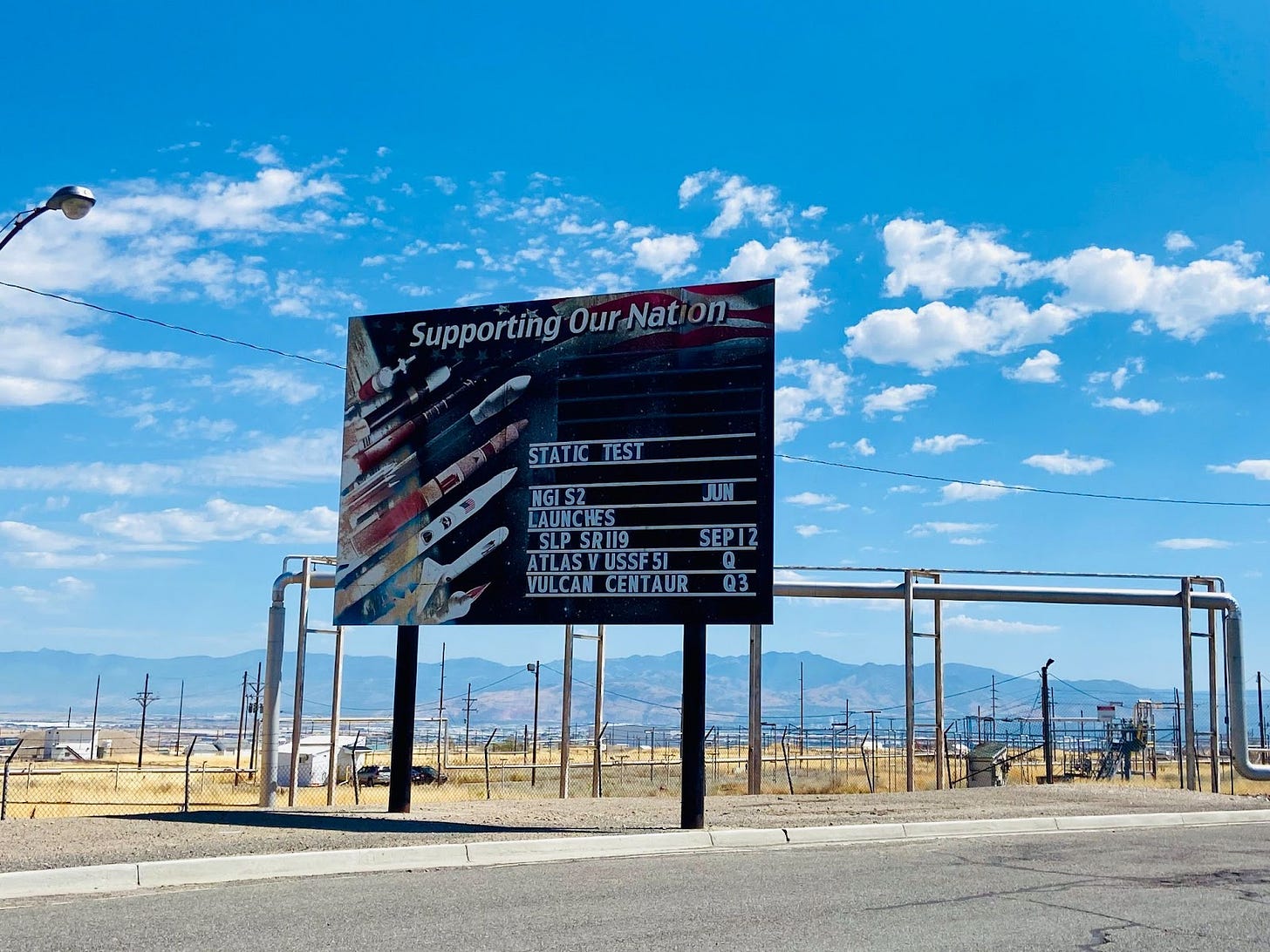Utah Quietly Downgrades Northrop Grumman Worker Death Charges
An update from our exclusive exposé on worker deaths at the world’s largest nuclear weapons manufacturer and the fallout Northrop Grumman didn’t face.
Last year, Inkstick Media became the first outlet to publish the names and circumstances of the deaths of two Northrop Grumman employees, Jonathan Steinke, 24, and Ken Tran, 48, at a missile plant south of Salt Lake City in a town called Magna. (See: Dying to Make Hypersonic Missiles in Utah.) They were asphyxiated by leaking argon gas, which displaces oxygen, in a basement area of an industrial complex known as the Bacchus Works that was originally a dynamite plant built back in 1913. The Magna plant nowadays is part of the supply chain for the new intercontinental ballistic missile, Sentinel.
The company never publicly named the men, and I heard from their coworkers after our first story was published that they came upon our article after trying to find out more about what happened back in January of 2023.
A training slide sent by an employee to Inkstick.
The Utah state version of OSHA, called UOSH, used its harshest category — “willful, serious” — to categorize the workplace safety violations that led to Steinke and Tran’s deaths. Using that category for workplace fatalities points to the harshest penalties available for OSHA violations, including criminal prosecutions of Northrop Grumman supervisors and managers. But after my story was published last year, I began hearing from people close to the case that the company — the third largest defense contractor in the United States — would very likely avoid the worst fallout it could have faced for their deaths.
Our latest story is a deep dive into how Utah quietly downgraded the charges in this worker death case and how twists in the legal and regulatory landscape, like a Trump I-era repeal of workplace safety regulations and Utah’s ability to sideline a labor union in its settlements, made it so that Northrop Grumman got away with little in the way of penalties in this case: just an $81,918 fine, while it continues to rake in $3.5 billion in defense contracts in the state.
Read more in our latest: Utah Quietly Downgrades Northrop Grumman Worker Death Charges
Two views of Northrop Grumman’s plant in Magna, Utah. Photos by Taylor Barnes
And workers continue to suffer on-the-job injuries at Northrop Grumman in Utah. Eric Olsen, a spokesman for the Utah Labor Commission, told Inkstick in September that the commission was “aware and investigating” reports of several recent hand and foot injuries, including allegations that three workers’ feet were crushed by a falling 6,750-pound piece of equipment, at plants in Promontory and Clearfield.
An internal safety training slide for Northrop Grumman, sent by an employee to Inkstick, says that 104 fatal injuries have occurred at Northrop Grumman’s propulsion systems properties since 1960. Those worker deaths included ones at companies Northrop Grumman acquired such as Hercules, which formerly operated the Magna plant, and Thiokol, a chemical company whose search for “cheap, unproductive land” where it could conduct “explosive” operations in the early years of the Cold War led it to Utah’s West Desert and established the state as a crucial node on the map of US nuclear weapons manufacturing.
Spokespeople for Northrop Grumman did not respond to my repeated requests for comment on the alleged workplace injuries and the historical death figures.
ICYMI: Our new reporting fellows
If you support this work, a reminder: We recently brought two new reporting fellows from Connecticut and Missouri onto this beat, and we’re eager to keep diving into the people and places tied up in the United States soon-to-be $1 trillion defense budget. If you’d like to support their work and mine, we’re part of Newsmatch for the rest of the year — all donations to Inkstick are doubled by the Institute for Nonprofit News through the end of the year.
What makes us different from the rest of the national security press? Well, for one, we are a nonprofit that, as a matter of policy, refuses any funding from defense contractors that could color our views — a big rarity on this beat where, for example, mainstream outlets are chock full of ads for Lockheed Martin or literally sponsored by Northrop Grumman.








